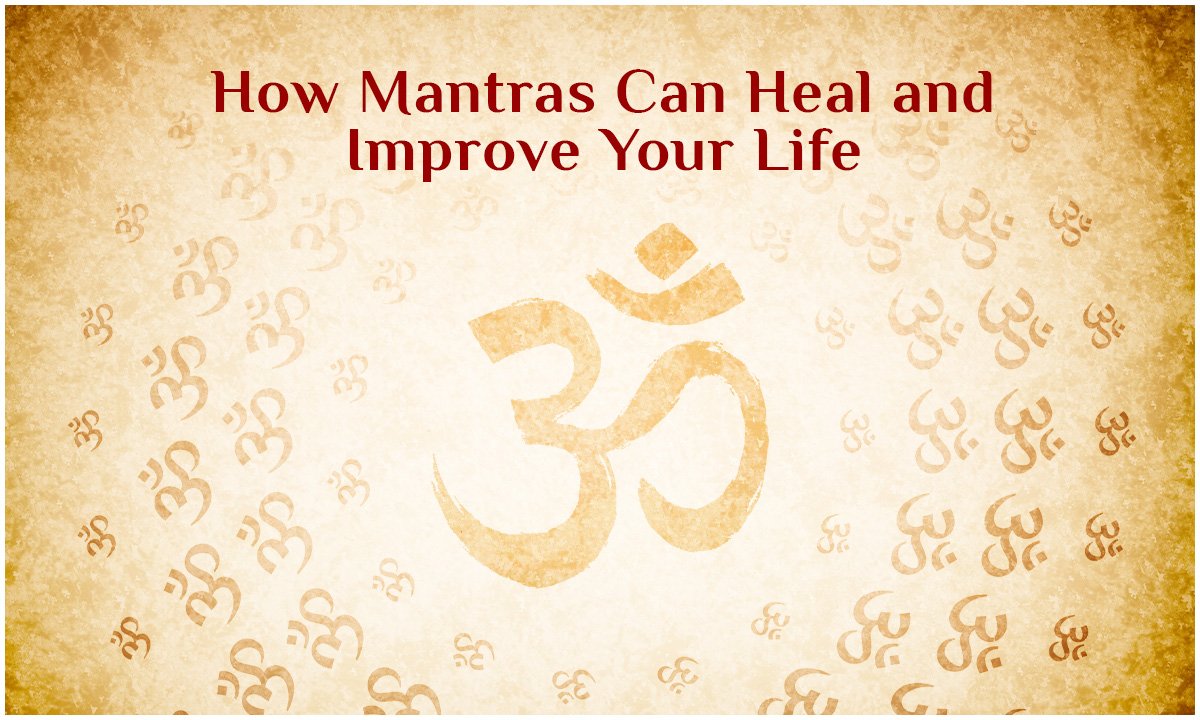Mantras are ancient, sacred sounds that have been used for thousands of years to connect the mind, body, and spirit. In today’s world, they are more relevant than ever, as people seek ways to reduce stress, improve mental clarity, and align with a higher purpose. But what exactly are mantras? How did they originate, and why should you consider chanting them daily? This blog will dive deep into the origins, science, and significance of mantras, and how they can transform your life.
What Are Mantras?
Mantras are spiritual or sacred sounds, syllables, words, or phrases repeated during meditation or chanting. The word “mantra” is derived from two Sanskrit roots: “man” meaning mind and “tra” meaning tool. Thus, mantras are often referred to as “tools for the mind,” helping to focus attention, clear mental distractions, and align oneself with spiritual energies.
Mantras can take many forms, including
Single-Syllable Sounds: These are often referred to as “Bija” (seed) mantras, like “Om,” which is considered the primordial sound of the universe.
Short Phrases: Many mantras consist of short, powerful phrases, such as “Om Namah Shivaya,” which translates to “I bow to Lord Shiva.”
Longer Chants: Some mantras are longer, consisting of verses or hymns with specific meanings and implications.
Origin of Mantras?
Mantras originated in ancient India and are rooted in Vedic tradition. The Vedas, which are sacred texts of Hinduism, contain some of the earliest references to mantras. It is believed that sages, or rishis, heard these sacred sounds in deep states of meditation and shared them to help others achieve higher states of consciousness. Over time, these mantras became a key part of religious and spiritual practices, not only in Hinduism but also in Buddhism, Jainism, and Sikhism.
Why Were Mantras Introduced?
Mantras were introduced as a means to connect with the divine, attain inner peace, and harness cosmic energies. The sages believed that the universe was made of sound vibrations and that repeating certain sounds could harmonize the mind, body, and soul. The introduction of mantras aimed to help individuals transcend the material world, cleanse the mind, and connect with higher consciousness. Additionally, they serve as powerful tools for spiritual awakening, self-realization, and healing.
Scientific Reasons for Chanting Mantras
Mantras are not only spiritually significant but also have scientific benefits. Research shows that the repetitive chanting of mantras can bring about positive physiological and psychological effects.
Calming the Mind: Chanting mantras produces sound vibrations that resonate with the brainwaves, inducing a state of relaxation. Studies have shown that mantra chanting can reduce stress, anxiety, and depression, helping to calm the mind and enhance focus.
Stimulating the Vagus Nerve: The vibrations created by chanting mantras stimulate the vagus nerve, which plays a key role in controlling the parasympathetic nervous system. This results in a calming effect on the body, reducing blood pressure and improving heart rate variability.
Positive Impact on Brain Chemistry: Chanting mantras regularly increases the production of dopamine and serotonin, the “feel-good” chemicals in the brain, enhancing mood and emotional well-being.
Connection Between Vedic Astrology and Mantras
In Vedic astrology, each planet is believed to have an influence on different aspects of human life, from career and health to relationships and mental well-being. Just as planets emit energy, mantras carry vibrational frequencies that can help balance or neutralize planetary influences. Chanting specific mantras can strengthen the positive effects of favorable planets or reduce the negative effects of malefic planets.
Specific Mantras for Each Planet and Their Benefits
In Vedic astrology, each planet has a corresponding mantra. These mantras are chanted to either enhance the planet’s beneficial effects or mitigate its malefic influences.
Sun (Surya): “Om Suryaya Namaha” – Strengthens leadership, vitality, and personal power.
Moon (Chandra): “Om Chandraya Namaha” – Enhances emotional balance, creativity, and nurturing qualities.
Mars (Mangal): “Om Mangalaya Namaha” – Boosts courage, strength, and protection.
Mercury (Budh): “Om Budhaya Namaha” – Enhances communication, intelligence, and adaptability.
Jupiter (Guru): “Om Gurave Namaha” – Promotes wisdom, spiritual growth, and abundance.
Venus (Shukra): “Om Shukraya Namaha” – Attracts love, beauty, and luxury.
Saturn (Shani): “Om Sham Shanicharaya Namaha” – Eases hardships and brings discipline and patience.
Chanting these mantras helps individuals align themselves with the planetary energies, enabling smoother life experiences.
Is Mantra Chanting Really Necessary?
While chanting mantras is not mandatory, it can be a powerful practice for those seeking mental clarity, spiritual growth, and emotional balance. Mantras are more than just spiritual expressions; they are tools for healing, focus, and energy alignment. Chanting mantras daily can help you stay grounded, overcome difficulties, and attract positive opportunities.
Benefits of Chanting Mantras
Stress Reduction: The vibrations of mantras calm the nervous system, helping to reduce anxiety and stress.
Improved Focus and Concentration: Repeating mantras trains the mind to focus, improving productivity and mental clarity.
Emotional Healing: Mantras help release emotional blockages and create a sense of inner peace.
Spiritual Growth: Chanting mantras brings spiritual awareness, fostering a deeper connection with your higher self.
Physical Health Benefits: By reducing stress, mantra chanting can improve physical health by lowering blood pressure and boosting immunity.
Can Anyone Chant Mantras and Anywhere?
Yes, anyone can chant mantras, regardless of religious or spiritual beliefs. Mantras are not limited to specific groups of people and can be chanted anywhere—at home, in a temple, or during a walk. There are no strict rules about the location or timing, but it is important to create a calm, focused environment while chanting.
Is There a Rule to Chant Mantras?
While there are no strict rules, there are best practices for mantra chanting:
Consistency: Chanting regularly, preferably at the same time each day, helps build discipline and enhances the effectiveness of the practice.
Mindfulness: Chant with full awareness and intention, focusing on the meaning and sound of the mantra.
Posture: Sit in a comfortable, upright position with your spine aligned to allow energy to flow freely.
Number of Repetitions: Traditionally, mantras are chanted in multiples of 108, as this number is considered sacred.
How to Chant Mantras: A Guide to Finding Inner Peace and Focus
Chanting mantras is a powerful way to center the mind, connect with your inner self, and enhance your spiritual practice. Whether you’re new to mantra chanting or looking to deepen your experience, understanding the different ways to chant can make your practice more effective and fulfilling. Begin by taking a few minutes to focus on your breath, allowing yourself to relax and become present. From there, you can seamlessly transition into chanting, creating a rhythm that resonates with your mind and spirit. In this guide, we’ll explore various techniques to help you get started.
Chanting Out Loud: This method creates vibrations that resonate throughout your body and the environment, making it ideal for group chanting or personal practice.
Silent Chanting: Choose a mantra that resonates with you. Find a quiet space and focus on pronunciation and rhythm. Use a mala (prayer beads) to count repetitions if preferred, with each bead representing one repetition to keep track of your chanting.
Listening to Recorded Mantras: For those who prefer guidance, listening to mantra recordings while sitting in a meditative posture can also be effective.
Group Chanting: Also known as “satsang,” group chanting can be immensely powerful. Gather with friends, family, or community members to chant together. The collective energy amplifies the vibrations and fosters a sense of unity.
What Might We Lose If We Don’t Chant?
While not everyone may feel the need to chant mantras, you might miss out on
Stress Management: You may lose a powerful tool for managing stress and anxiety in your life.
Emotional Healing: The opportunity for emotional release and healing may remain unexplored.
Spiritual Growth: Missing out on the chance to deepen your spiritual connection and awareness.
Positive Energy: Your environment may lack the uplifting energy created through chant.
Conclusion
Mantras are more than just spiritual practices—they are tools for transformation, healing, and growth. By incorporating mantra chanting into your daily routine, you align yourself with positive energies, enhance mental clarity, and open yourself to new opportunities. Whether you believe in gods or not, the science and spirituality behind mantras show that their benefits are universal, making them a powerful practice for anyone.

